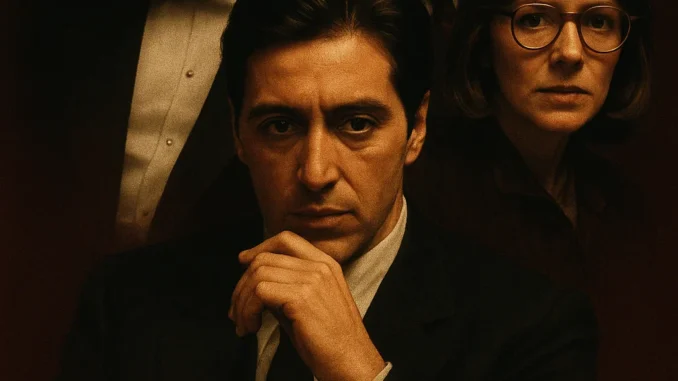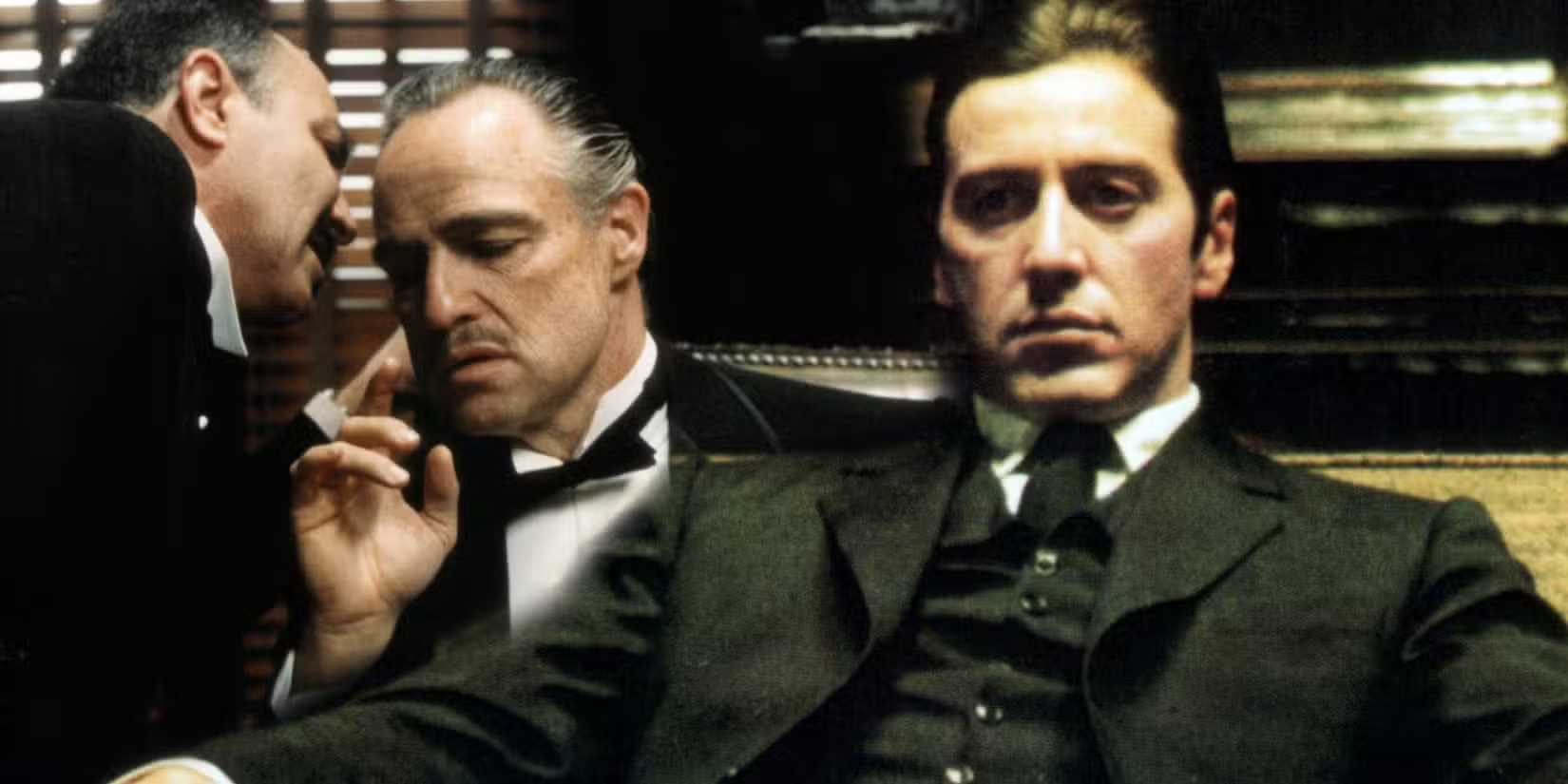
Released in 1972, Francis Ford Coppola’s The Godfather has long been hailed as one of the greatest films in the history of cinema. More than just a crime drama, it is widely regarded as the definitive gangster film and a milestone that forever changed the language of storytelling on screen. Audiences are often captivated by the shadowy, somber cinematography of Gordon Willis, the melancholy yet majestic score composed by Nino Rota, and, of course, Marlon Brando’s immortal presence as Don Vito Corleone—a performance that has become inseparable from the very idea of the Mafia patriarch. Yet the true and enduring power of The Godfather lies not in its surface elements of style, but in its heart: the character of Michael Corleone. His journey from reluctant outsider to ruthless crime lord transforms the film into something far greater than a tale of organized crime. It becomes, instead, a modern tragedy of Shakespearean weight.

When Michael first enters the film, he seems to belong to a different world altogether. A decorated Marine hero who fought for his country, Michael arrives at his sister’s wedding with his American girlfriend, Kay, and sits apart from his family’s affairs. He tells her, almost defensively: “That’s my family, Kay, it’s not me.” In that moment, Michael represents the possibility of breaking free from the Corleone legacy, of living a life defined by personal choice rather than blood ties. But destiny has other plans. When his father, Don Vito, barely survives an assassination attempt, Michael’s sense of loyalty collides with circumstance, drawing him into a violent cycle of revenge. What begins as a temporary measure to protect his father soon becomes irreversible.
Gradually, Michael transforms into the very figure he once rejected. His calm precision in orchestrating murders, his calculated retreat to Sicily, and his eventual return to America signal the death of the young man who once dreamed of a different life. By the end of the film, Michael has become the new Godfather—cold, calculating, and unflinching in his exercise of power. In choosing to protect and preserve the family legacy, he loses himself, sacrificing not only love and morality but also the humanity that once set him apart.

This transformation is the soul of the film. It mirrors the structure of classical tragedy: a man with the potential for greatness is undone by his own ambition and the inescapable pull of fate. Michael’s arc echoes Shakespearean characters like Macbeth or Hamlet—heroes who fall not merely because of circumstance, but because of the choices they make under its weight. Coppola’s genius was to take Mario Puzo’s crime saga and elevate it into a meditation on power, family, and destiny, giving The Godfather an emotional and philosophical depth rarely seen in the gangster genre.
More than fifty years later, The Godfather retains its force precisely because of this timeless message: anyone, no matter how noble or detached they may seem, can be consumed by power. The final image of Michael—his cold stare as the door closes on Kay, shutting her and the audience out of his world—remains one of the most hauntingly tragic moments in cinema history. It is the image of a man who has gained everything yet lost his soul, a moment that ensures The Godfather endures not only as a great film, but as one of the great tragedies of modern art.
